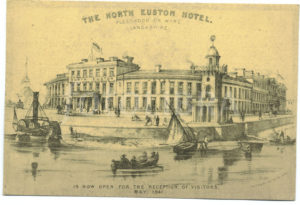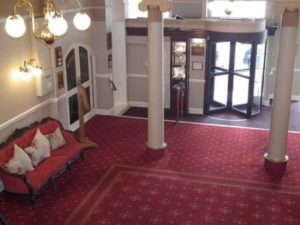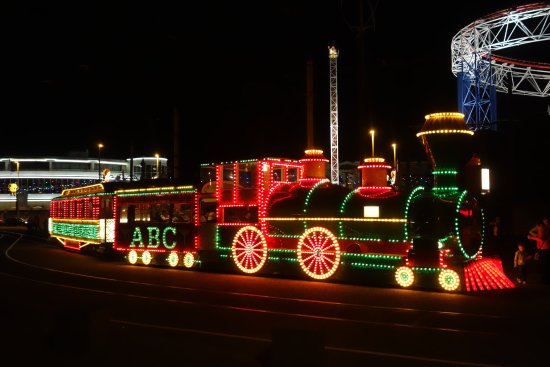The North Euston Hotel is a hotel in Fleetwood. It was built in the early 1840s and stands today as a Grade II listed building. There are many stories of eerie goings on here but the story of the cellars is possibly the most intriguing.
Construction
Built following a design by Decimus Burton, the hotel has a grand look to it and it is a welcoming sight to visitors. Burton was an architect who was hired by Peter Hesketh-Fleetwood. Not only did Burton design the hotel, but he also designed the layout for Fleetwood itself as well as several other major buildings.
One of Hesketh-Fleetwood’s aims was to come up with a town that would have a train station. He wanted it to be a major stop so that people could travel from way down South in London and from as far North as Scotland. Obviously, having a hotel would be crucial so that the holidaymakers had somewhere to stay when they visited. As there was no railway line through the Lake District at that point, Hesketh-Fleetwood believed that Fleetwood could be an important connection so that a boat could carry passengers from Fleetwood to Scotland.

The name for the hotel was decided upon because Hesketh-Fleetwood believed that a lot of the visitors to the town would be travelling from London’s Euston train station. Naming it the North Euston Hotel seemed to be the best thing to do, especially as Fleetwood was the most northerly train station at the time.
Construction of the North Euston Hotel began in 1840 and a regatta was arranged for the town to celebrate the opening of the new building in 1841.
The Fate of the Hotel
Unfortunately for the town, not long after, a railway route was built directly to Scotland and this was the end of the dreams that Hesketh-Fleetwood had of turning the town into a key transport link.

With the fading tourism industry, there was little need for the hotel. Eventually, it was sold to the government. With no need to use for the venue as a hotel, it was passed onto the War Department who used it as a School of Musketry from 1961-1967. Along with other structures, the North Euston Hotel formed Euston Barracks. The hotel was eventually repurposed and reverted back to being a hotel in 1898.
The North Euston became named as a Grade II listed building by the English Heritage on 26th April 1950.
The Cellars and Ghost
Beneath the hotel is a maze of cellars. A doorway that had been bricked up in the basement was knocked down in 2014. Upon the demolition of the wall, a room was discovered that owners believe hasn’t been used in over 100 years. The room would probably have gone undiscovered if it wasn’t for contractors who needed to know where some pipes went. During upgrading work in the Hotel, the contractors knocked down the wall and made the discovery.
The mysterious room is dark and full of rubble. A brick archway in the room lies below street level and in front of the archway there is a panelled door. A name was written on the wall with an address. The name is legible and reads Robert Atkinson but the address is difficult to make out. It appears that the number 39 is readable as well as the words Road and Fleetwood. Other features around the room suggest that it may have been used as a stable. A fireplace in the room also suggests that the room may have been used as accommodation for the staff in the hotel.

During the war when the Hotel was used as a School of Musketry, it is understood that the officers lived in the rooms upstairs whilst their subordinates slept in the cellar along with their horses.
One story about the cellars is that one of the fusiliers who came from Enniskillen lived in the cellars during his time there. It is told that he became so homesick and depressed that he committed suicide. Unfortunately for the man, he seems to have made the Hotel his home forever, as it is believed that his ghost still haunts the cellars. An apparition of a lonely looking man is sometimes seen lurking in the shadows of the cellar.







